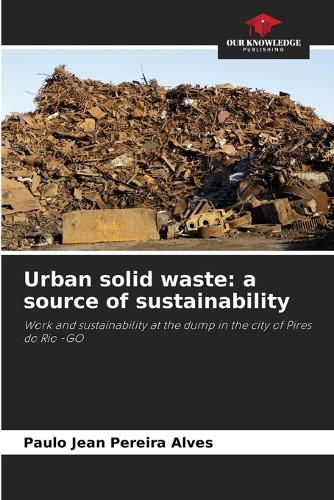Readings Newsletter
Become a Readings Member to make your shopping experience even easier.
Sign in or sign up for free!
You’re not far away from qualifying for FREE standard shipping within Australia
You’ve qualified for FREE standard shipping within Australia
The cart is loading…






The publication of this book is yet another result of my first work with Urban Solid Waste. It is the fruit of a Course Conclusion Work in Geography at the State University of Goias - Pires do Rio Campus. In the city of Pires do Rio -GO, we see serious environmental problems resulting from a lack of urban planning and management. The huge increase in consumption generates enormous amounts of waste of all kinds, from homes, public activities and the industrial process. The waste produced in the city of Pires do Rio -GO, is collected by press trucks and dumped in an open dump, with no care taken to separate dry and wet waste. The aim of this work is therefore to understand how these people (waste pickers) live, why they are subjected to such a situation, to verify the perception of residents living near the dump in relation to waste pickers, and also to analyze sustainability through waste collection. At the end, I will present some suggestions to make life easier for the waste pickers, who are the real players in the environment.
$9.00 standard shipping within Australia
FREE standard shipping within Australia for orders over $100.00
Express & International shipping calculated at checkout
The publication of this book is yet another result of my first work with Urban Solid Waste. It is the fruit of a Course Conclusion Work in Geography at the State University of Goias - Pires do Rio Campus. In the city of Pires do Rio -GO, we see serious environmental problems resulting from a lack of urban planning and management. The huge increase in consumption generates enormous amounts of waste of all kinds, from homes, public activities and the industrial process. The waste produced in the city of Pires do Rio -GO, is collected by press trucks and dumped in an open dump, with no care taken to separate dry and wet waste. The aim of this work is therefore to understand how these people (waste pickers) live, why they are subjected to such a situation, to verify the perception of residents living near the dump in relation to waste pickers, and also to analyze sustainability through waste collection. At the end, I will present some suggestions to make life easier for the waste pickers, who are the real players in the environment.